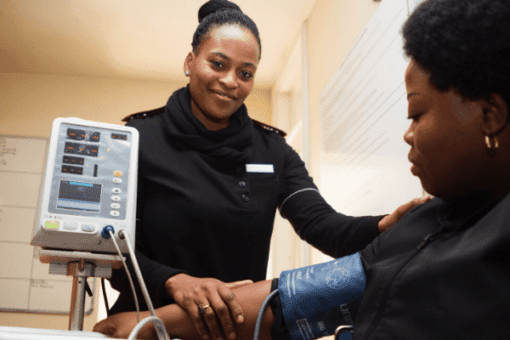The World Health Organization (WHO) has designated 2020 as the International Year of the Nurse and the Midwife. While the theme runs through the entire year, it is especially celebrated on World Health Day 2020, which falls on April 7. On World Health Day, the first ever State of the World’s Nursing Report 2020 will be released.

According to WHO:
The report will provide a global picture of the nursing workforce and support evidence-based planning to optimize the contributions of this workforce to improve health and wellbeing for all. The report will set the agenda for data collection, policy dialogue, research and advocacy, and investment in the health workforce for generations to come. A similar report on the Midwifery workforce will be launched in 2021.
Nursing plays a crucial role in the entire world’s healthcare system, as the current COVID-19 global pandemic demonstrates in stark terms. Nurses are on the front lines, spending far more time with patients than doctors are able to. The relationship between nurses and patients is significant, and built on trust. Unfortunately, there is a worldwide nursing shortage. In the United States, the shortage is projected to continue for several years.
Nurses in Eating Disorder Care
Although most people might think of eating disorder providers as physicians, therapists, and registered dietitians, nurses are also key members of the treatment team. They carry out many duties, including helping patients become medically stable; monitoring vital signs; educating patients and families about medical issues such as low or high blood pressure; conducting medication management; and coordinating with other medical providers.
How to Participate
The WHO gives several recommendations about how to support nurses and midwives, including the following:
- Thank nurses and midwives for all their hard work.
- Contact local and national political representatives to create policy that invests in nurses and midwives.
- Develop a petition related to nursing care – his could address nurse-to-patient ratios, hazard pay for dangerous working conditions, or long work hours.
You can also spread information via social media, using the hashtag #supportnursesandmidwives. Social media graphics may be found here.
About the Author
Barbara Spanjers, MS MFT is a therapist and wellness coach who helps people feel more attuned with food and their body.
